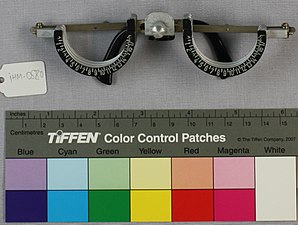GLAM/Newsletter/September 2017/Contents/Switzerland report
|
Third Edition of the Swiss Open Cultural Data Hackathon
On 15-16 September 2017, the third edition of the Swiss Open Cultural Data Hackathon took place in Lausanne. The event, which has already become tradition – "almost like a family gathering", as one of the participants remarked – took place for the first time in the French speaking part of Switzerland and attracted about 90 participants. As in the previous years, it has been a national event with an international flavour thanks to the participation of international guests.
Wikidata Workshops

While Wikidata had been present in the previous years, both through projects (e.g. the Wikidata Ancestor Tool that was created during the 2015 edition) and Workshops (last year, Wikimedia Sweden's Connected Open Heritage Project was presented), the Wikidata presence was brought to a whole new level this year.
The programme started off with a Wikidata Gathering that took place during the Thursday afternoon preceding the hackathon and attracted about 20 participants – mostly GLAM staff and students. They received a thorough introduction to Wikidata by Sandra Fauconnier, followed by an outline of the current status of heritage data in Wikidata by Beat Estermann, inspired by the insights from an earlier discussion during Wikimania 2017. The gathering was rounded off by a brainstorming session during which participants shared their project ideas in connection with Wikidata.
Hackathon Projects

In the course of the hackathon, some 11 projects were pursued by the different groups. Roughly half of them were related to Wikidata in some way or the other. Here some examples:
Collaborative Face Recognition and Picture Annotation for Archives
Starting from a collection of League of Nations Photographs and a challenge proposed by the United Nations Library, a group of students from Lyon took it upon themselves to develop a face recognition tool that can be run on photograph collections and annotates pictures with the information about the people depicted on them, linking them to their Wikidata entry (see: project description page; video of the final presentation).
Ingesting Schauspielhaus Zürich Performances in Wikidata

Representatives of the Swiss Archives for the Performing Arts and the Fachinformationsdienst Darstellende Kunst in Frankfurt (www.performing-arts.eu), along with other hackathon participants, tackled the question of how best to ingest data about theatrical productions into Wikidata. The test dataset was provided by the Zurich Municipal Archives and covers one of the most exciting periods of Swiss Theatre History with the Schauspielhaus Zürich being the largest free stage in the German-speaking world during the Nazi period. In fact, many important actors and directors immigrated to Switzerland from Germany and Austria. With the help of these artists, the theater achieved great success, staging many anti-fascist works, importantly the world-premieres of several plays by Bertolt Brecht. After the war, the theater retained its important place in the theatre world, as it saw world premieres of important playwrights such as Max Frisch, Friedrich Dürrenmatt, Carl Zuckmayer, Georges Schehadé, Botho Strauß, or Yasmina Reza (see: project description page; video of the project presentation; documentation on Wikidata).
Wikidata Ontology Explorer

Many recurring question during the hackathon were about the way ontology is expressed in Wikidata. This inspired Lucas Werkmeister to build a helpful tool on the spot: the Wikidata Ontology Explorer (video of the project presentation). Lucas also gave a one-hour Wikidata and SPARQL introduction during the hackathon.
Plenty of Data and Content Waiting for a Community to Take Care of Them!
With a certain regularity, the annual hackathon brings to the fore new collections and datasets that are potentially valuable to the Wikimedia community. As in the previous years, we counted about ten new photo collections that are worthy of uploading to Wikimedia Commons. In some cases, the institutions are taking care of this themselves, in others we still need to provide them with some guidance on how to go about it (as in the example described below). In preparation to the Wikdiata workshop, we have also carried out a census of datasets that would be good candidates for the ingestion into Wikidata. Among the approx. 110 open datasets about 15 are fit for ingestion. Some of them contain data about people (actors, dancers, writers, photographers, painters, politicians, etc.), others about historical monuments, heritage institutions, theatrical productions, or the world's animal and plant species. – There is an overwhelming influx of new data and content, which reminds us every year of the fact that getting the data is not enough, that we need to build communities around it, curate it and put it to some use!
Medical History Collection
One interesting set of images was imported to Wikimedia Commons during the hackathon: photos of historical medical instruments and other medical heritage from the collections of Lausanne's Institut universitaire d'histoire de la médecine et de la santé publique. It was the institution's first contribution to Wikimedia Commons.
-
Chloroform flask
-
Ophthalmologist equipment
-
Stethoscope




